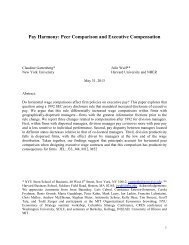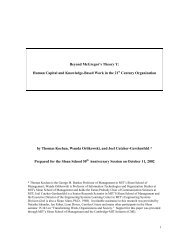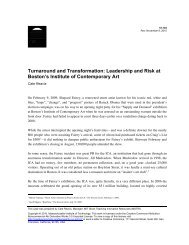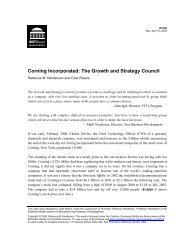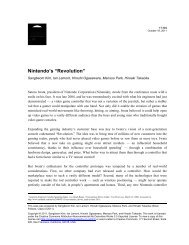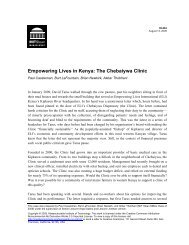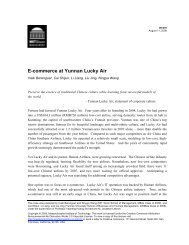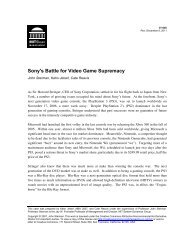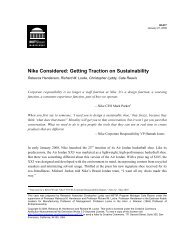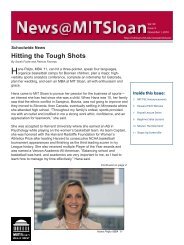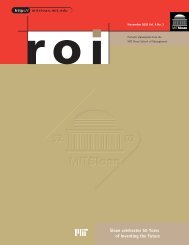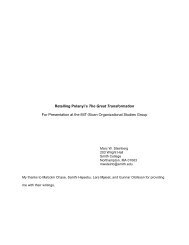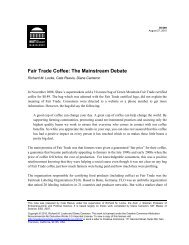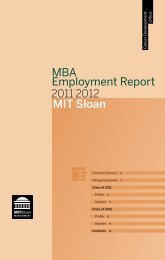Understanding earnings quality - MIT Sloan School of Management
Understanding earnings quality - MIT Sloan School of Management
Understanding earnings quality - MIT Sloan School of Management
Create successful ePaper yourself
Turn your PDF publications into a flip-book with our unique Google optimized e-Paper software.
Despite the long-standing recognition that optimal contracts, and more generally internal<br />
controls as defined by Jensen and Meckling (1976), may lead to accounting choices that benefit the<br />
agent at the expense <strong>of</strong> the firm (i.e., opportunistic <strong>earnings</strong> management) or to efficient accounting<br />
choices that maximize the value <strong>of</strong> the firm, the debate is still open. 57 Christie and Zimmerman<br />
(1994) and Bowen et al. (2008) examine which <strong>of</strong> these two alternative explanations is dominant in<br />
explaining observed discretionary accounting choices. Both papers conclude that contracting<br />
efficiency is the main explanation. In addition, Bowen et al. (2008) find that accounting discretion<br />
associated with poor controls is positively related to future operating performance (i.e., operating<br />
cash flows and return on assets), which they interpret as evidence that <strong>earnings</strong> management is<br />
beneficial to shareholders.<br />
Their findings raise the question <strong>of</strong> whether and when equityholders recognize that<br />
discretionary accounting choices are ex post efficient vs. opportunistic. Christie and Zimmerman<br />
(1994) assume that the takeover market would discipline opportunism and use this to identify a<br />
sample <strong>of</strong> firms that are likely to be opportunistic. While it is reasonable to assume that participants<br />
in the takeover market can unwind <strong>earnings</strong> management, it is an empirical question whether equity<br />
investors, or other parties such as analysts, are able to unwind <strong>earnings</strong> management. The stock<br />
option grant papers provide evidence that equity investors infer that <strong>earnings</strong> may be managed<br />
around grant dates and incorporate an expectation <strong>of</strong> rational <strong>earnings</strong> management into their<br />
pricing. However, research that explores the extent to which equity investors infer rational <strong>earnings</strong><br />
57 Dye and Verrecchia (1995), Fischer and Verrecchia (2000), and Stocken and Verrecchia (2004) use varied modeling<br />
techniques to yield predictions about accounting method choice and conditions that affect efficiency. The predictions<br />
about accounting choices, including disclosure, depend on the parameterization <strong>of</strong> the model and the assumptions about<br />
the contracting environment, information asymmetry, and the costs to the manager <strong>of</strong> various firm decisions. Managers<br />
sometimes choose accounting methods to convey information and sometimes choose methods that intentionally increase<br />
the noise in financial reports. Discretion sometimes improves efficiency but sometimes decreases it. The choice <strong>of</strong> a<br />
more noisy financial reporting system can be associated with increased efficiency, which may seem to be an unintuitive<br />
result.<br />
101



